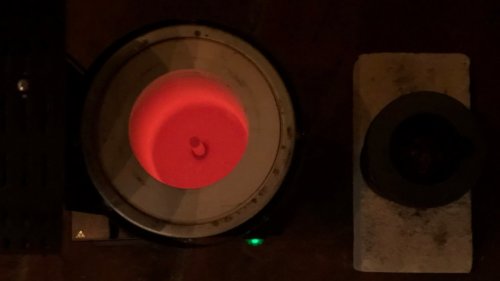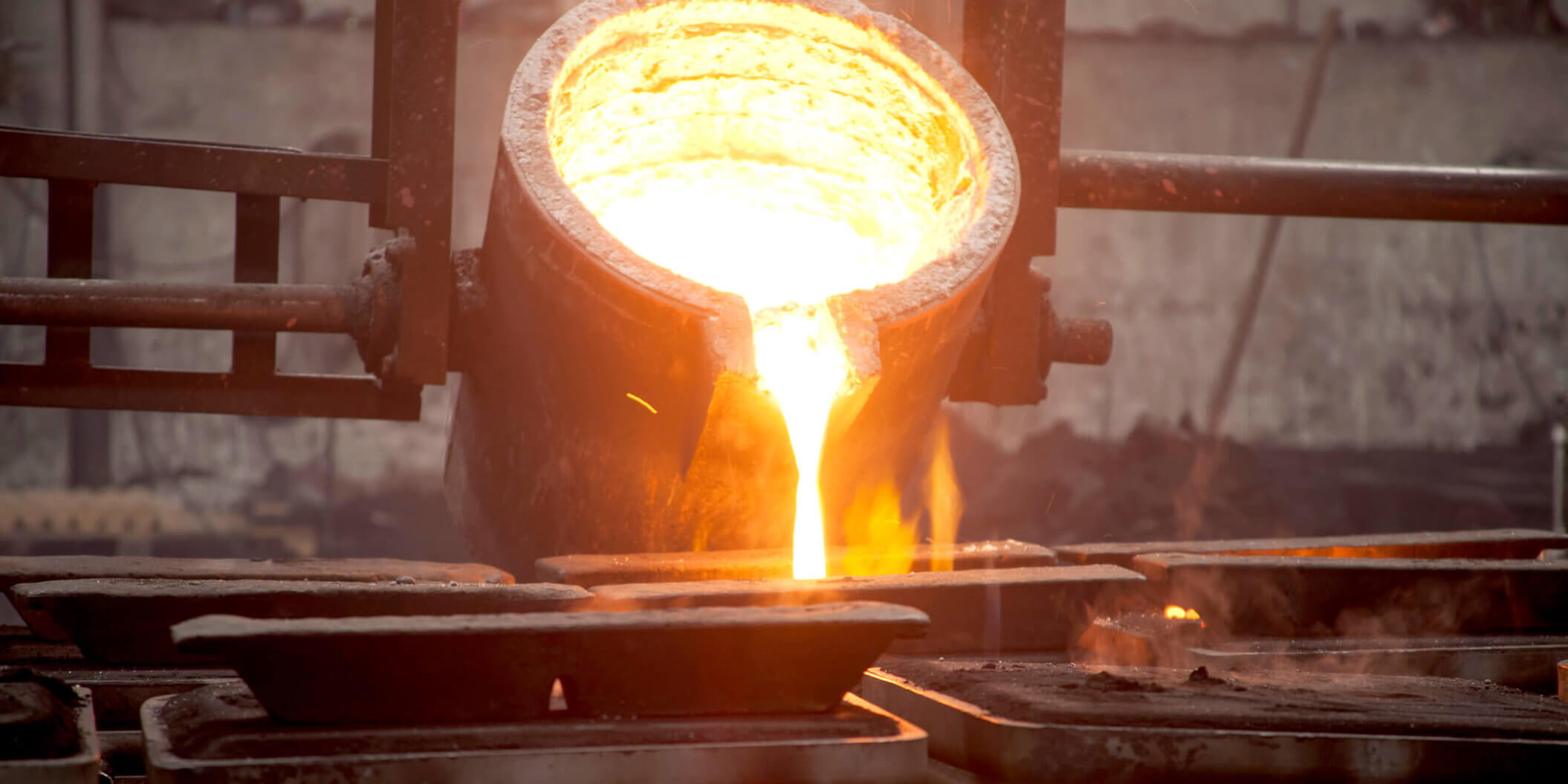My son is taking an independent study on metal making. In an effort to help sustain his learning during our lockdown, his Colorado Academy instructor, Chris Roads, dropped off a mini-furnace at our home. George picked up the furnace at the end of our driveway and excitedly plugged it in, and then told us he was going to melt down some aluminum. My wife and I looked at each other with wide eyes and both independently Googled, “What is the melting point for aluminum?” When we saw that this melting point is at 1,221 degrees Fahrenheit, Thomassen asked, “Can you please supervise?” (Note: Props to Chris Roads who had really worked with George on how to use this equipment safely.)
So, I went outside and hung out as George set the temperature of the furnace and got all of his equipment together. As you can see from the video of his inaugural effort, it was pretty exciting as George grabbed a massive pair of metal tongs to pull out the ceramic container that held the liquid metal.

Some of you may know that the container that holds the molten metal is called “the crucible.” Typically made of either ceramic or metal, it can withstand intense heat and pressure. In it, the material breaks down under heat, becoming liquid, and, then, as one pours the molten material into a mold, becomes something new. As I watched George manipulate this glowing red container, I thought about our shared crucible of living through COVID-19 and what this means for this generation.
The crucible of World War II was truly the last time that all Americans were called upon to make a shared sacrifice for the greater good. The war effort affected nearly all aspects of American life. There was rationing of goods and services. Millions of Americans were drafted into military service. Millions of others worked in factories to supply that war effort. Businesses deemed essential to the war were compelled to change their mission and direction to support the efforts to defeat the Axis Powers. In the days since, there have been many crises that tested our society, but, these were not as transformative for society as a whole compared to WWII. There were some moments in the Cold War in which individual liberties were set aside for the national interest. Even after the terrible event of 9/11 and the ensuing 20 years of war in Iraq and Afghanistan, the real sacrifice of the War on Terror has only truly been placed upon a relatively small number of American citizen soldiers and their families.
The pandemic has awakened America from a deep, narcissistic slumber. We have spent the past decade staring at ourselves through our social media apps. We focused on our comfort and conspicuous consumption. Whole industries emerged to make our lives easier, as other more traditional industries critical to an industrial society moved overseas. The urgency of this crisis caught many leaders (from both sides of the aisle) off guard. The calls from our public officials to isolate and stay at home to slow the spread of the virus have upended our society. Shortages of medical equipment and testing have revealed massive issues in our readiness as a society to deal with a pandemic and other crises. As a true believer in the power of America, I am stunned by how far we have fallen as a leader of nations. I just cannot conceive that the most powerful nation in the history of the world was this ill prepared. The implications of this are real: millions of Americans have lost their jobs. The death rate in the United States has already surpassed 5,000—that’s more than died on 9/11. I expect more bad news to come in the next few weeks, and we all need to brace ourselves as we continue to do our civic duty.
So, what comes out of this crucible? There are some dire predictions about what society looks like post-COVID-19. I am not sure I agree with most of what I have read. This crisis will end. We are incredibly resilient. America often does better in the face of an external threat. WWII helped us rally together the entire nation to face down unspeakable evil. During the Cold War, the threat of communist expansion pulled Americans together. There has been bi-partisan support for a host of issues in this country. The Civil Rights Movement probably would not have happened without the context of the Cold War, as there was a compelling need for America to live up to our highest and best ideals. If you go back to late 19th century America when there was no true external threat, the most divisive issue in America was that of the tariff. And, in retrospect, the passion politicians exhibited over that issue seems silly. In our more recent years, after the immediacy of the threat of al Qaeda to our national security died down, America became more and more divided, often over fringe issues. We’ve forgotten what binds us together.
In the face of hundreds of thousands—if not millions—being affected by this pandemic, we are pulling together. I went to the grocery store the other day and saw workers helping others. One reads reports of doctors, nurses, and first responders and the courage they exhibit as they fulfill their duties. We see relief efforts of all types happening right now. In these moments, regular Americans are great at putting aside ideological differences to help their fellow citizens—even as they are fearful about their own futures.
This pandemic will mold this generation of students. They will have experienced something historic. The loss of life will be tragic and will be mourned. But, my hope is that a generation of children will come out of this, understanding more about civic responsibility and more about the power of human-to-human interaction. We have all learned quickly that school isn’t just about content and that virtual learning can only take us so far. We have learned that humanity needs social and physical connection. My hope is that out of this crucible we appreciate the power of connections. This generation, who will have to deal with the consequences of climate change and economic inequality, will understand the importance of reaching out to others, and using critical reasoning to solve immense problems. Right now, every adult in this country needs to model this for young people. I hope you all stay safe and healthy and steady during this time.
